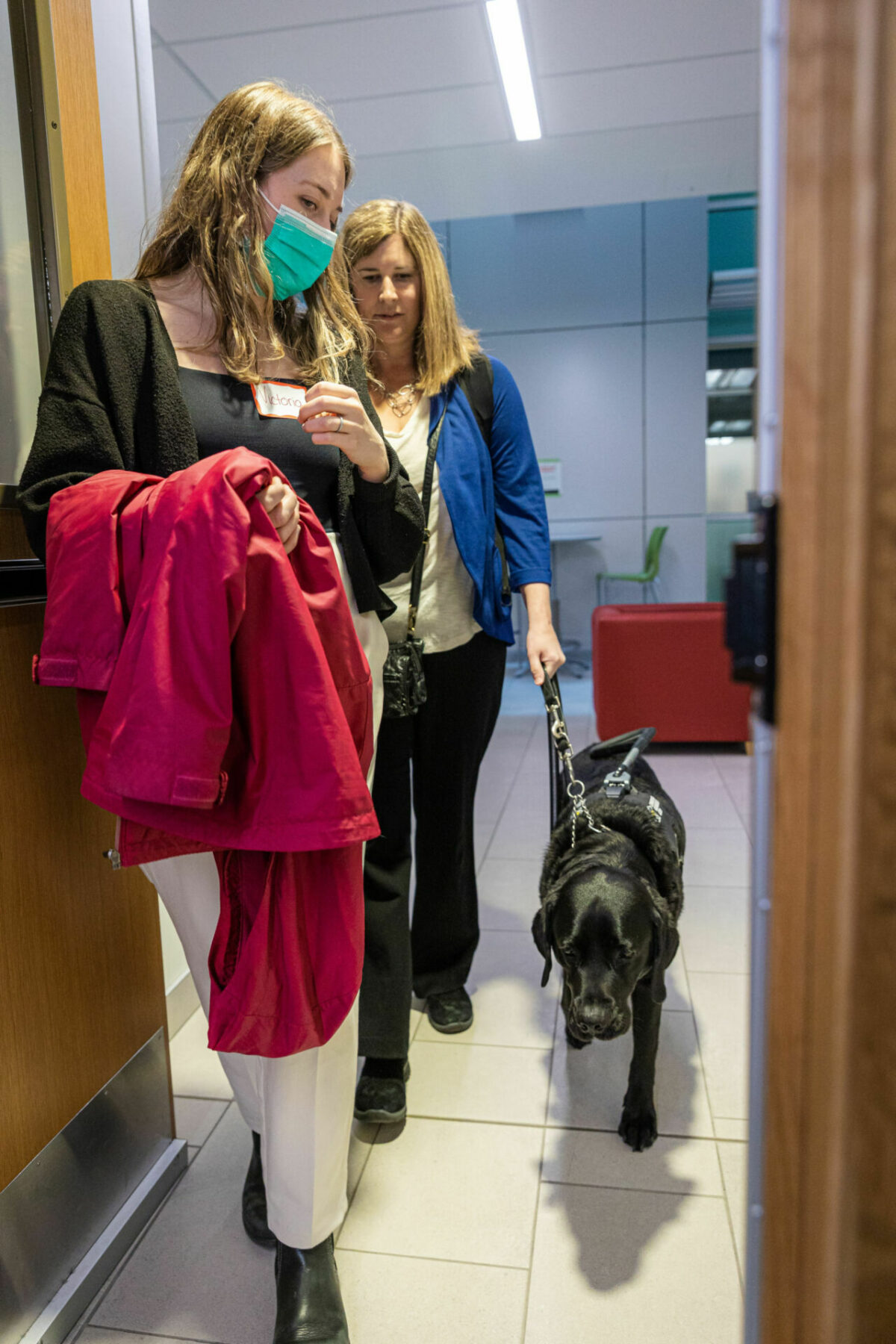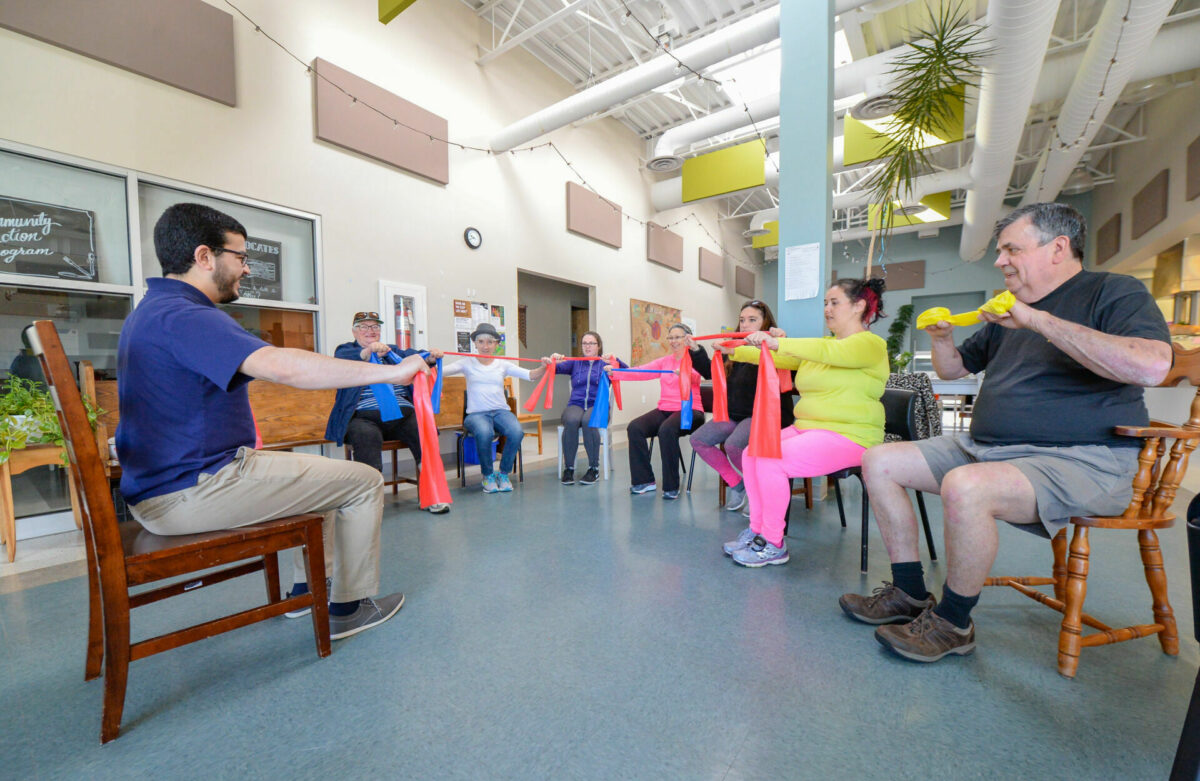More than Medicine: Community Engaged Service Learning Program
August 25, 2023
There is more to being a physician than the skills needed to diagnose and treat disease. Critical thinking, patient advocacy and communication, collaboration, and community building are competencies that cannot be fully taught in the classroom. At Dalhousie Medicine, medical students have the opportunity to build these integral abilities through the Community-Engaged Service Learning Program (CESL), offered during the first two years of their undergraduate education.
The program combines classroom-based learning with community experiences through service learning. Participating students are matched with organizations who work with underserved and equity-deserving communities and partner with them to develop impactful deliverables relevant to that population.
Part of the Faculty of Medicine’s Office of Community Partnerships and Global Health, the CESL Program seeks to enhance student learning through testing classroom-learned skills and knowledge in a real-world setting. Students engage and collaborate with the organizations for a minimum of 20 hours to - address real problems they are facing. In doing so, they contribute to social accountability in medicine and are inspired to become leaders in their communities.
For example, Dal Med students Victoria Taylor, Sarah Jennings, and Tyler Herod partnered with the Canadian National Institute for the Blind (CNIB) for their Service Learning Project, exploring health advocacy for patients with sight-loss in hospital settings. “With help from our community partners, we were able to brainstorm ways to help reduce some of these barriers in local communities,” say Taylor, Jennings, and Herod. They developed an understanding of the barriers people with vision loss face, specifically at healthcare facilities. The students held focus groups to determine the key challenges and made recommendations for improvements.
"Working with CNIB was an enlightening experience that grew our perspectives of some of the challenges faced by individuals with sight loss. Going forward, we will continue to advocate for change and amplify the voices of those with sight loss and other communities affected by accessibility barriers in healthcare facilities."
– Victoria Taylor, Sarah Jennings, Tyler Herod

Launched in 2015, this unique program now partners with both local and national partners such as Special Olympics New Brunswick, 211 Nova Scotia, Immigrant Services Association of Nova Scotia (ISANS), and Chebucto Connections. “Through these relationships, students can connect what they are learning in the classroom and lab to community issues like social justice, social determinants of health, health advocacy, access to care, and more,” says CESL program manager, Sarah Peddle.
There are currently 38 partner organizations (32 in Halifax and 6 in Saint John with Dalhousie Medicine New Brunswick) connected with the program, an increase of 10 from the previous year. They also had their highest enrollment last year, with 68 students participating, compared to 42 in 2021. “The goal is to continue to enhance the program so that as many students and community-based organizations as possible can benefit from this collective advocacy,” says Ms. Peddle. However, to make that happen, the program needs additional funding. Right now, each student may request an operational budget of $300 to implement a program, initiative, or activity within their organization but because of a limited budget, and continued growth of the program, this amount cannot be guaranteed for everyone. Imagine the impact we could have if that budget was just doubled and available to everyone?
Ariel Provo and Analyssa Cardenas, both entering their third year of medical school at Dalhousie, partnered with the Wije'winen Health Centre, a local health centre with the goal of providing holistic care for the urban Indigenous community. They worked with the staff to create a promotional campaign detailing the services offered at the clinic, including developing culturally relevant marketing materials. "This experience was a great opportunity for us to engage with our local community and we learned a lot from everyone we partnered with,” say Provo and Cardenas. “We can't wait to see the Wije'winen Health Centre continue to grow!"
“These students are the future of our healthcare system,” says Ms. Peddle, “there’s more we can do to support them as they interact with and serve patients, develop a lens of advocacy, and rebuild broken trust in traditionally underrepresented priority communities.” Imagine a young Indigenous person seeing a future physician passionately working to solve healthcare challenges at their local community centre—the impact is immeasurable, but major.
The CESL Program helps develop empathetic, service-driven, and well-rounded people who will become compassionate, patient-centric physicians. Physicians that will hopefully practice right here in Nova Scotia, compounding the positive impact they have in their communities.

TAGS
